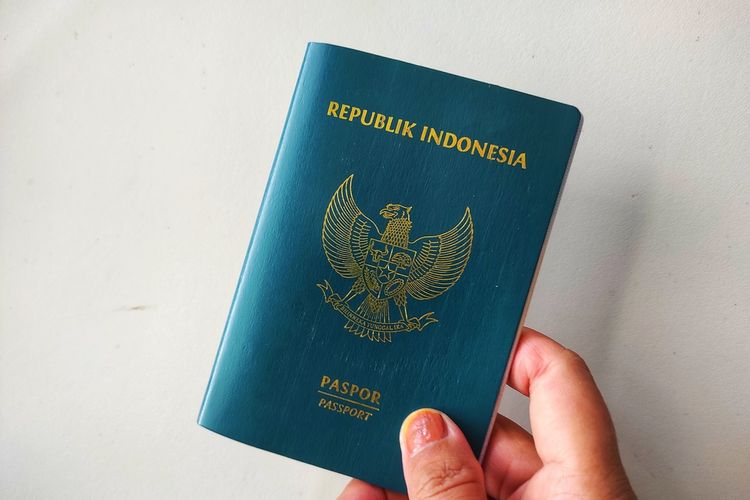Norma Agama
Indonesia adalah negara yang memiliki berbagai macam suku dan agama yang tersebar di seluruh wilayahnya. Hal ini membuat setiap kelompok masyarakat di Indonesia memiliki norma agama yang beragam. Oleh karena itu, norma agama menjadi tingkatan norma penting dalam masyarakat Indonesia. Norma agama adalah aturan atau tata cara yang diberlakukan oleh setiap agama yang ada di Indonesia, sehingga setiap umatnya diharapkan dapat mengikuti-nati dan mempraktekkan setiap aturan dan norma yang berlaku dalam agamanya.
Di Indonesia, norma agama diatur dalam UUD 1945 pasal 29 ayat 1 yang berbunyi “Negara berdasar atas Ketuhanan Yang Maha Esa.” Hal ini menunjukkan bahwa agama sangat penting bagi kepercayaan dan budaya masyarakat Indonesia. Sejak dahulu, masyarakat Indonesia sudah mengenal adanya norma agama. Terdapat beberapa agama yang ada di Indonesia dicontohkan seperti Islam, Kristen, Hindu, Budha, Konghucu, dan lain-lain. Namun, meskipun norma agama berbeda-beda, norma tersebut harus saling menghormati dan menjaga toleransi satu sama lain.
Salah satu contoh Norma Agama di Indonesia adalah adanya adab dalam beribadah. Dalam Islam, disebutkan bahwa melakukan sholat dengan sebaik-baiknya, berjilbab bagi perempuan, mencuci bagian tubuh sebelum sholat, dan berbicara dengan suara pelan saat di dalam masjid. Sementara pada agama Kristen, adab beribadah dilakukan dengan berdoa, menyanyikan lagu kebaktian, dan mendengarkan khotbah dari pendeta.
Tidak hanya itu, norma agama di Indonesia juga mengajarkan Etika Sosial. Etika sosial ditekankan dalam kehidupan sehari-hari dalam masyarakat, seperti tidak menyombongkan diri, tidak berkata kasar, tidak melakukan perbuatan yang merugikan orang lain, jujur, dan tidak merusak fasilitas umum. Hal ini juga menunjukkan bahwa setiap agama memiliki nilai-nilai yang sama mengenai akhlak yang baik dalam bergaul.
Selain itu, norma agama juga mengatur tentang etika bisnis dalam kehidupan masyarakat. Contohnya di Indonesia, setiap agama memberikan panduan mengenai adanya jaminan kerja yang layak, tidak melakukan penipuan atau penjualan barang-barang yang berbau riba dan menghindari korupsi atau tindakan tidak jujur yang merugikan orang lain.
Norma agama juga diterapkan dalam pengaturan waktu dalam kehidupan masyarakat, seperti waktu melakukan ibadah dan menjalankan ibadah pada hari-hari tertentu seperti pada hari raya keagamaan. Hal ini menunjukkan betapa pentingnya norma agama dalam kehidupan masyarakat Indonesia. Melalui norma agama, masyarakat Indonesia diajarkan etika yang baik dan menjadi pedoman untuk mewujudkan kehidupan masyarakat yang harmonis dan damai.
Dalam kehidupan sehari-hari, norma agama di Indonesia juga menjadi pedoman bagi setiap individu dalam berbuat kebaikan. Setiap agama dalam Indonesia mengajarkan untuk selalu berbuat baik dan berkarya sesuai dengan kemampuan masing-masing. Hal ini sangat penting mengingat Indonesia merupakan negara yang memiliki masyarakat yang beragam dilihat dari sisi suku, agama, dan budaya. Norma agama menjadi suatu pegangan bagi setiap individu untuk memahami perbedaan dan mampu bertoleransi dan hidup saling menghormati dalam kerukunan dan damai.
Dalam rangka menjaga keharmonisan kelompok masyarakat di Indonesia, norma agama sangat penting untuk dipatuhi dan diikuti sebagai pedoman hidup. Oleh karena itu, setiap individu di Indonesia diharapkan bisa menjunjung tinggi norma agama dan mengaplikasikannya dalam kehidupan sehari-hari.
Norma Hukum
Norma hukum merupakan norma yang terbentuk dari aturan atau peraturan yang dikeluarkan oleh negara untuk mengatur perilaku masyarakat. Norma hukum dibentuk sebagai landasan hukum yang harus dipatuhi oleh seluruh warga negara Indonesia untuk mencapai kedamaian dan ketertiban dalam masyarakat.
Norma hukum di Indonesia terdiri dari beberapa jenis, yaitu:
1. Undang-Undang
Undang-undang adalah norma hukum tertinggi di Indonesia yang terbentuk dari hasil pembahasan dan pengesahan di DPR dan disahkan oleh Presiden. Undang-undang ini berlaku untuk seluruh masyarakat Indonesia dan mengatur tentang segala aspek kehidupan masyarakat.
2. Peraturan Pemerintah
Peraturan pemerintah adalah norma hukum yang dibentuk oleh pemerintah untuk melaksanakan undang-undang yang telah disahkan oleh DPR. Peraturan pemerintah ini lebih khusus dibandingkan undang-undang karena mengatur tentang pelaksanaan undang-undang tersebut.
Peraturan pemerintah dibuat oleh Presiden dengan persetujuan DPR dan mengatur tentang segala hal yang berkaitan dengan pembangunan, pertahanan keamanan, keuangan negara, dan lain-lain. Contoh dari peraturan pemerintah di Indonesia adalah Peraturan Pemerintah Nomor 20 Tahun 2021 tentang Penggunaan Kendaraan Bermotor Dinas.
3. Peraturan Menteri
Peraturan menteri adalah norma hukum yang dibuat oleh menteri sebagai pelaksana tugas pemerintah dalam bidang tertentu. Peraturan menteri ini lebih spesifik lagi dibandingkan dengan undang-undang dan peraturan pemerintah karena mengatur tentang pelaksanaan peraturan pemerintah.
Contoh dari peraturan menteri di Indonesia adalah Peraturan Menteri Kesehatan Nomor 6 Tahun 2021 tentang Standar Biaya Kegiatan Program Jaminan Kesehatan.
4. Peraturan Daerah
Peraturan daerah adalah norma hukum yang dibuat oleh pemerintah daerah untuk mengatur tentang hal-hal yang bersifat khusus di daerah tersebut, seperti pengelolaan keuangan, tata ruang, pendidikan, dan lain-lain.
Peraturan daerah dibuat oleh DPRD yang kemudian ditandatangani oleh kepala daerah. Peraturan daerah ini hanya berlaku di daerah tersebut dan tidak berlaku di daerah lainnya. Contoh dari peraturan daerah di Indonesia adalah Peraturan Daerah Provinsi Jawa Tengah Nomor 8 Tahun 2021 tentang tentang Rencana Tata Ruang Wilayah Provinsi Jawa Tengah Tahun 2021-2031.
Demikianlah penjelasan tentang norma hukum di Indonesia yang terdiri dari undang-undang, peraturan pemerintah, peraturan menteri, dan peraturan daerah. Semua norma hukum di Indonesia wajib dipatuhi oleh seluruh warga negara untuk menciptakan masyarakat yang damai dan sejahtera.
Norma Kesusilaan
Indonesia is a country with a diverse culture, religion, and tradition. Every society in Indonesia has its own norms and values that may differ from one another. Norma kesusilaan is one of the important norms in Indonesia which stands for ethical norms. Norma kesusilaan is often associated with the Islamic moral code, but it is also influenced by other religions such as Hinduism, Buddhism, and Confucianism.
Norma kesusilaan in Indonesian society is a collection of unwritten rules that regulate moral conduct, which covers various aspects of human life, such as personal, family, social and community. It refers to the set of values, principles, and beliefs that guide individuals to behave ethically and respectfully towards others, and also respecting cultural and traditional practices.
Aspects of norma kesusilaan in Indonesia are diverse and cover various areas of life. The norma kesusilaan of personal life covers attributes such as honesty, sincerity, responsibility, modesty, and respect for elders and those in authority. Individuals are expected to be honest and sincere in their dealings with others, responsible for their actions, and show respect to the elders and those in a higher position. Modesty is also considered a virtue as individuals are expected to behave humbly, especially in their dress and general demeanor.
The norma kesusilaan of family is highly cherished in Indonesia, and it is believed that its preservation helps to maintain the social order. The norma kesusilaan of family covers many aspects, such as marriage, child-rearing, and family relations. Marriage is seen as a sacred institution that involves not only the couple but also their families. Thus, before marriage, the consent of both families is sought. Furthermore, in child-rearing, parents are expected to be the primary teachers of moral values, spiritual guidance, and cultural traditions, so that their children can grow up to be strong, morally upright, and productive members of society.
Norma kesusilaan in the social and community aspect of life is manifested in how individuals interact with others in their community. Respect for elders and those in authority is seen as a valuable attribute that fosters harmonious relationships in the community. Individuals are expected to show kindness, hospitality, and civility towards others and to avoid behavior that is harmful to others. Community welfare is also highly valued, and individuals are expected to take an active role in contributing towards the well-being of their community.
In conclusion, norma kesusilaan is one of the essential norms that regulate moral conduct in Indonesian society. It covers various aspects of human life, such as personal, family, social, and community. Norma kesusilaan is a collection of unwritten rules that guide individuals to behave ethically and respectfully towards others and to respect cultural and traditional practices. The preservation of norma kesusilaan is believed to help maintain social order and promote harmonious relationships in society.
Norma Adat Istiadat

Indonesia is a country rich in culture and tradition. Each region has its own customs and norms that are still followed until this day. These customs and norms are often passed down from generation to generation, shaping the community’s behavior and beliefs. Therefore, it is important to understand tingkatan norma dalam masyarakat terdiri dari Indonesia, including Norma Adat Istiadat.
Norma adat istiadat is a set of unwritten rules and traditions that govern behavior and social etiquette in Indonesia. It includes customs related to marriage, funerals, birth, and other important life events. These norms differ from region to region, and the implementation can also vary, depending on the social status, religious beliefs, and other cultural factors.
The importance of norma adat istiadat lies in preserving the traditions and values that reflect the community’s identity. It also promotes social harmony and respect for diversity. Understanding and following these norms can also help individuals establish their place in society and build social connections.
One example of norma adat istiadat is the traditional Javanese wedding ceremony. According to Javanese custom, the bride’s family plays a significant role in the wedding preparation, and the bride must respect and obey her parents’ wishes. The groom’s family, on the other hand, must follow the customs of the bride’s family and seek their approval before the wedding. During the ceremony, the bride and groom must perform several rituals, including the “siraman” (a ritual bath) and “midodareni” (a prayer for blessings).
In some parts of Indonesia, the norms related to death and funeral are also prominent. For example, in Bali, the Balinese people follow a unique funeral ceremony called “Ngaben.” This ceremony involves several steps, starting from washing and preparing the deceased’s body to carrying the coffin to the cremation site. The ceremony also involves offerings, prayers, and other rituals performed by the family and community members.
However, the implementation of norma adat istiadat can also lead to social problems and conflicts. For instance, some norms emphasize the importance of maintaining social hierarchy and power dynamics, which can lead to discrimination and exclusion. In addition, some norms can clash with modern values and practices, leading to conflicts between traditional and modern lifestyles. Therefore, it is essential to strike a balance between preserving cultural traditions and promoting social inclusion and equality.
In conclusion, norma adat istiadat is a vital part of Indonesian culture and society. It reflects the customs and traditions that shape the community’s identity and values. Understanding and appreciating these norms can help individuals build social connections and establish a sense of belonging. However, it is important to ensure that these norms do not lead to social exclusion, discrimination, or conflicts and that they align with modern values and practices.
Norma Kesopanan dan Tatakrama
Indonesia is a country that is known for its unique and diverse culture that is reflected in its norms and values. Among these norms, we have the norm of kesopanan and tatakrama, which are specific to Indonesian society.
Kesopanan
Kesopanan refers to the set of polite and mannerly behaviors or conduct that is practiced in Indonesian society. These norms govern how individuals should interact with each other, especially when it comes to public behavior. Kesopanan entails being respectful, courteous, and polite towards others, regardless of the situation or circumstances.
For example, it is considered impolite to speak in a loud voice or be disruptive in public places like public transportation. Indonesians also use certain phrases to express politeness, such as “permisi” (excuse me) when they need to get past someone or “terima kasih” (thank you) when someone provides assistance. This norm is often instilled in individuals from a young age and is a significant part of Indonesian culture that fosters social harmony.
Tatakrama
Tatakrama, on the other hand, refers to the code of conduct that governs personal behavior, especially in the household. This norm is often specific to a particular community, religion, or ethnic group. It includes behavior such as being respectful towards elders, using formal language, and following certain rituals or customs.
For instance, in Javanese culture, showing respect to elders is highly valued, and using appropriate titles such as Bapak (Father) and Ibu (Mother) when addressing them is considered essential. Similarly, the Balinese observe the tradition of “Ngayah,” where members of the community participate in activities such as temple cleaning and offering preparations, as an expression of their devotion to the community and religion.
Overall, these norms of kesopanan and tatakrama play a vital role in shaping Indonesian society. They help to maintain social harmony, respect, and a sense of community. While it may take some time for foreigners to fully grasp these norms, being respectful towards Indonesian culture and following them is greatly appreciated.
Challenges to Kesopanan and Tatakrama
While Indonesian society upholds these norms as a crucial part of its culture, various factors challenge their implementation. One example is the influence of Western culture, which has impacted Indonesian society significantly.
With the rise of globalization and the popularity of Western media, some Indonesians have begun to adopt Western norms, behavior, and fashion. While this may not be problematic in isolation, it can sometimes lead to a loss of traditional norms like kesopanan and tatakrama, which could result in a breakdown of social values and a decline in the sense of community.
Another factor that challenges these norms is the fast-paced nature of modern life. As more people move into cities and live busy lives, they are often forced to prioritize efficiency over the traditional values of politeness and respect. As a result, these norms are at risk of being lost in modern society.
Despite these challenges, many Indonesians continue to uphold these norms, especially in their communities and households. They recognize the importance of kesopanan and tatakrama and continue to pass them on to future generations as a way to preserve their culture and promote social harmony.




